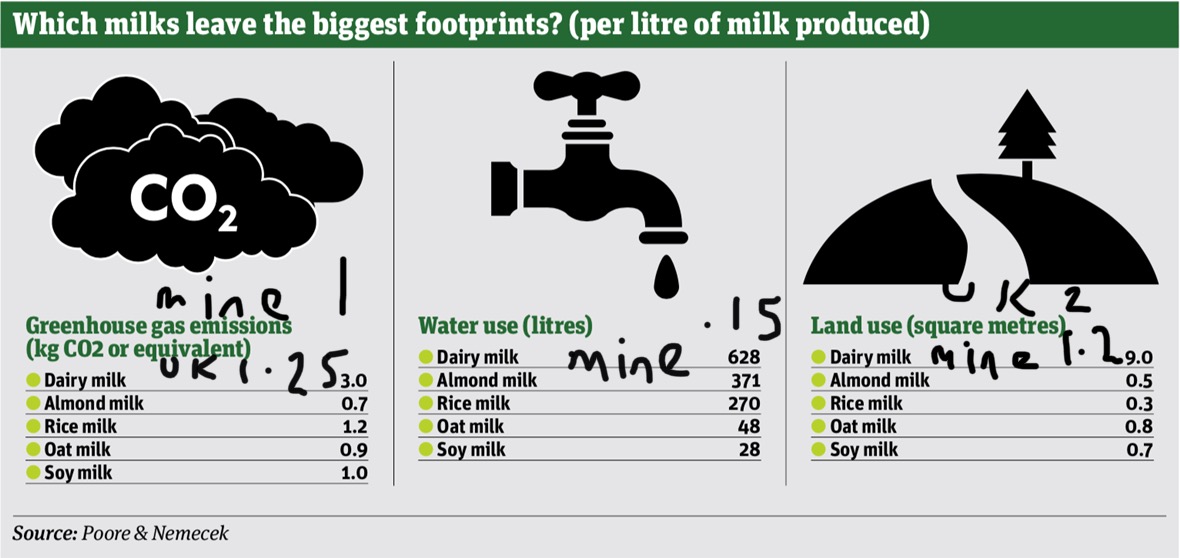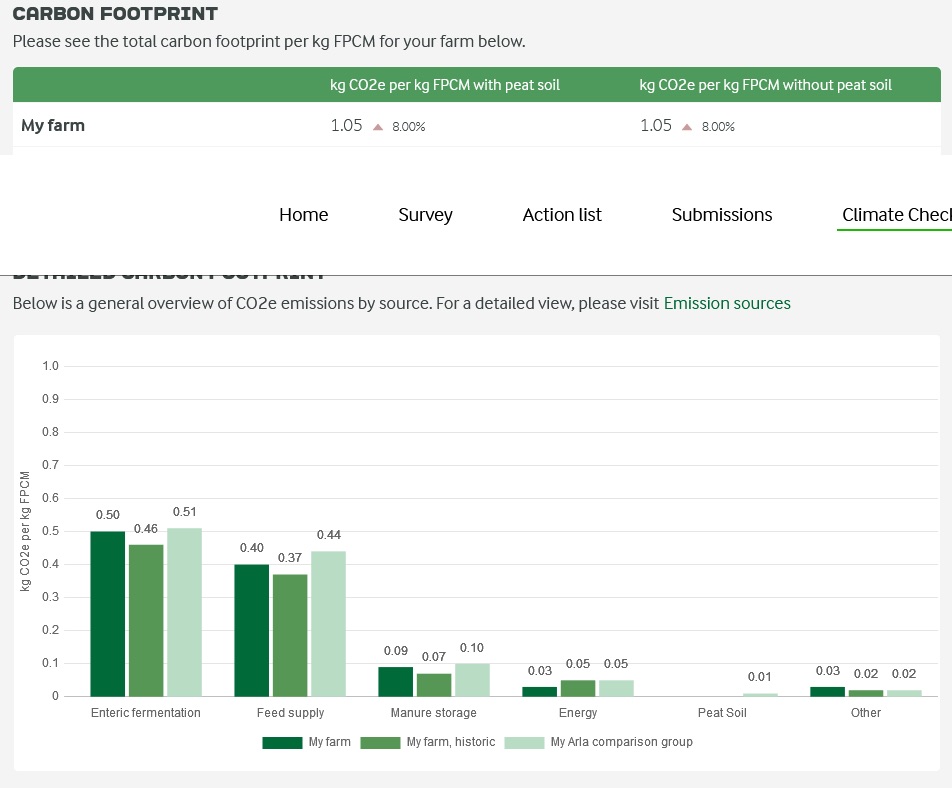- Location
- cornwall
Ok guys, I want to make sure my figures are generally right before I do the NFUs job and write to the economist and grocer magazines and the BBC about all this obvious bollox that is being spouted!
Having done my carbon footprint and realising that mine and the UK average were quite low. I looked for plant milk averages and found them to be similar to UK milk! I then found this gem that was in the grocer and based on supposed world average figures compiled by 2 VEGAN scientists at Oxford. The water Use one especially Is horrendously wrong. It’s no wonder the bbc et al are so full of bulls**t if these are the figures they are using. Can anyone point to any holes in my research, to stop me making a fool of myself?!


Having done my carbon footprint and realising that mine and the UK average were quite low. I looked for plant milk averages and found them to be similar to UK milk! I then found this gem that was in the grocer and based on supposed world average figures compiled by 2 VEGAN scientists at Oxford. The water Use one especially Is horrendously wrong. It’s no wonder the bbc et al are so full of bulls**t if these are the figures they are using. Can anyone point to any holes in my research, to stop me making a fool of myself?!








